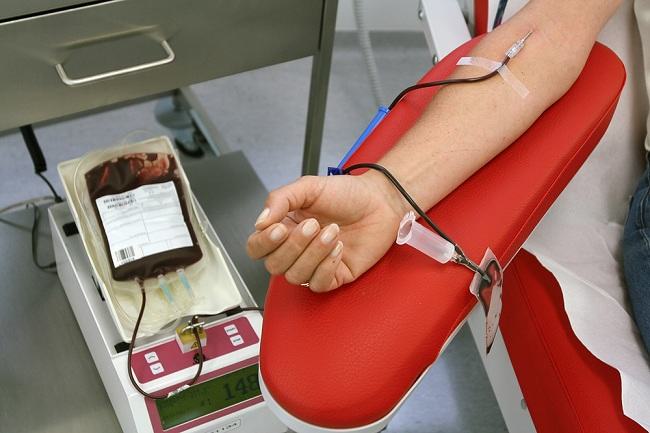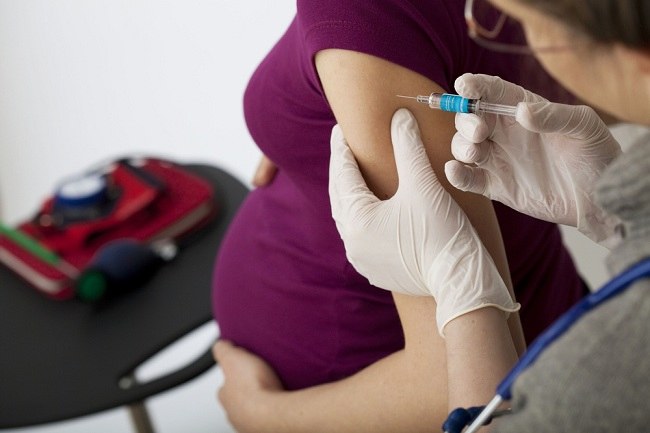Not only applies to infants and children, immunization is also needed by adults in preventing the transmission of diseases caused by viruses or bacteria that may be in the surrounding environment. One form of immunization is by giving vaccines.
Immunization is an effort to encourage the formation of immunity against a disease. In certain circumstances, adults require immunization in the form of vaccine injections every several periods.

By receiving vaccines, you not only protect yourself from disease transmission, but also break the chain of its spread and stop disease outbreaks occurring in an area.
Adult Immunization Through Compulsory Vaccines
When given to a person, the vaccine will trigger a specific immune reaction against a particular disease, for example the COVID-19 vaccine to ward off infection with the SARS-CoV-2 virus, so it doesn't develop into a disease.
Vaccines generally contain disease-causing microorganisms, such as viruses or bacteria, that have been weakened or killed. Vaccines can also be part of a microorganism that has been processed in such a way that it can stimulate the immune system to recognize and fight viruses or bacteria that cause disease.
In Indonesia, there are five types of vaccines that everyone must receive, namely hepatitis B, BCG, Polio, MR, and Tdap. Here is the explanation:
1. Hepatitis B vaccine
Based on the data and information center of the Indonesian Ministry of Health in 2014, Indonesia is the second largest hepatitis B endemic area in Southeast Asia after Myanmar, with an estimated 28 million Indonesians infected with Hepatitis B and C. That is the reason the hepatitis B vaccine is mandatory for Indonesians.
This vaccine is especially recommended for those of you who are at high risk of hepatitis B infection, such as:
- Working in a hospital or health facility
- Suffering from diabetes, liver and chronic kidney disease
- Having sex or living at home with someone with hepatitis
- Frequently changing sexual partners
- Suffering from a sexually transmitted disease, such as HIV
- Using drugs
- Having sex between men and men
The amount of hepatitis B vaccine you need is 3 doses. The interval between the first and second doses is a month. The third dose is given at least two months after getting the second dose of the vaccine.
2. BCG Vaccine
The BCG vaccine is useful for preventing you from getting tuberculosis (TB). This vaccine is recommended for infants, children, and adults aged 16–35 years, especially those at high risk of exposure to TB in the workplace, including:
- Laboratory staff who come into contact with patient blood or urine samples
- Animal health worker
- Prison staff who have direct contact with inmates
- Community health service officer
Adults may get the BCG vaccine under the following conditions:
- Never had the BCG vaccine before
- No history of TB disease
- Not suffering from HIV
- Not suffering from white blood cell cancer, such as leukemia and lymphoma
- Not currently on immunosuppressive treatment
- Never had a severe allergic reaction or anaphylaxis to any of the substances used in vaccines
- Not pregnant
3. Polio vaccine
The oral polio vaccine (OPV) is given at birth and at 2, 4, 6, and 18 months (or at 2, 3, 4 months according to government programs). While the injectable polio vaccine (IPV) is given at ages 2, 4, 6-18 months, and 6-8 years.
If the polio immunization is late, do not repeat the administration from the beginning, but continue and complete it according to schedule, regardless of the distance between the delay from the previous administration.
However, for those of you who just got the polio vaccine once or twice as a child, you must complete the polio vaccine series as an adult.
If you have never received a polio vaccination at all, you are recommended to undergo 3 doses of IPV polio vaccine injections, especially for those of you who frequently travel to countries with a greater risk of polio, work in laboratories, work as health workers who treat polio patients, or have close contact with a person infected with the polio virus.
The interval between the injection of the first and second doses is 1-2 months. Meanwhile, the third dose can be given 6-12 months after the second dose.
However, if you have had a series of polio vaccines (IPV or OPV) as a child, you will only need to have one injection of the polio vaccine. booster or boosters for lifelong immunity.
4. MR Vaccine
The MR vaccine is a substitute for the MMR vaccine, which is no longer available in public health facilities. The MR vaccine program is a priority for the Indonesian government as a form of control of measles and rubella infectious diseases.
Children who have received the MMR vaccine still need to get the MR vaccine to ensure full immunity against measles and rubella. The MR vaccine is given to all children aged 9 months to less than 15 years.
Not only children and adolescents, adults can also be given this vaccine. In women, for example, the MR vaccine given before they become pregnant can prevent miscarriage or birth defects in the baby.
5. Tdap Vaccine
The Tdap vaccine can prevent you from getting diphtheria, tetanus, and pertussis or whooping cough. This vaccine contains dead microorganisms.
The Tdap vaccine is recommended for those who have not received diphtheria vaccination after the age of 11, work in a hospital, are 27–36 weeks pregnant, are 65 years of age and older, or will be caring for a baby under a year old.
You are also advised to get a booster vaccine every 10 years to prevent exposure to the bacteria that cause diphtheria and tetanus.
6. COVID-19 Vaccine
This vaccine is required by the Indonesian government to break the chain of transmission of COVID-19. The following are the groups that the government prioritizes to receive the COVID-19 vaccine:
- Old age or have co-morbidities that can increase the severity of COVID-19
- Health workers who have a high risk of being infected and transmitting COVID-19
- People with jobs that have a high risk of contracting and transmitting COVID-19, such as members of the TNI and Polri, law enforcement officers, and other public service officers
The COVID-19 vaccine is recommended because it can protect the body from the Corona virus by stimulating specific immunity. The dose of COVID-19 vaccine for adults is 2 times with an amount of 0.5 mL per dose. The second vaccine is given 2 weeks to 1 month from the first vaccine.
Adult Immunization Through Supplementary Vaccines
In addition to the five mandatory vaccinations above, adults can also get other recommended or additional vaccinations, namely:
Influenza Vaccine
Influenza vaccine should be given every year as much as one dose from the age of 6 months. This vaccine can reduce the risk of getting the flu and its complications. Usually, the influenza vaccine is given in the form of an injection or a nasal spray.
Pneumococcal vaccine
Pneumococcal vaccine or pneumonia vaccine can prevent you from getting diseases caused by bacteria Streptococcus pneumoniae, including blood poisoning, meningitis, and pneumonia.
There are 2 types of pneumococcal vaccine, namely PCV and PPSV. The PCV vaccine is recommended for children under 2 years of age, while PPSV is recommended for people aged 65 years and over with 1 dose for life.
HPV Vaccine
The HPV vaccine can prevent you from getting the virus human papillomavirus (HPV) causes cervical cancer, mouth and throat cancer, cancer in the anal and genital areas, and genital warts. For those of you who have never been exposed to these diseases, the HPV virus can still be prevented by giving this vaccine.
The provision of the HPV vaccine in Indonesia is recommended for women and men from the age of 10 years and over. The vaccine is given 3 times with the second vaccination schedule being one or two months after the first injection, depending on the type of vaccine, and the last 6 months after the first injection.
Varicella Vaccine
Varicella vaccine can prevent chickenpox, which is caused by a virus varicella zoster. You will need 2 doses of this vaccine 4–8 weeks apart.
However, make sure you have never had chickenpox before and do not have certain diseases, such as cancer or HIV.
Hepatitis A vaccine
The hepatitis A vaccine is especially recommended for men who have had sex with men, drug users, people with chronic liver disease, HIV, workers in primates infected with hepatitis A, and people living in areas with a high risk of hepatitis A.
You will need 2 doses of hepatitis A vaccine at least 6 months apart from the first dose.
Herpes zoster vaccine
The recommended vaccination for elderly people over 50 years old is the herpes zoster vaccine. This type of vaccine is useful for reducing the risk of getting shingles or herpes zoster by up to 50%.
Special Immunizations for Travelers
This immunization or vaccination is specifically given to tourists who will travel to certain areas, either at home or abroad. The aim is to prevent infection and the spread of certain types of infectious diseases from an area visited.
Some countries even require tourists to bring proof of certain vaccinations, such as:
- Chorela Vaccine
- Hepatitis A and E . vaccines
- Japanese Encephalitis Vaccine
- Meningococcal vaccine
- Polio vaccine booster
- Rabies Vaccine
- Typhoid fever vaccine
- Yellow fever vaccine
Tourists who have not completed the vaccination must vaccinate according to the recommendations and rules required by the destination country.
Ideally, see your doctor or health specialist 4 or 6 weeks before your scheduled departure, as some vaccines require successive administration for several weeks.
For those of you with certain medical conditions, such as pregnancy, suffering from asplenia, type 1 and type 2 diabetes, heart disease, stroke, HIV infection, liver disease, asthma, kidney disease, or have a weakened immune system, it is recommended to consult a doctor to find out the type of vaccine needed.
It's never too late to get immunized, even though you're an adult. Visit the nearest hospital immediately, especially if you think you have not received a complete vaccination as a child. Also tell your medical history and type of work, so the doctor can give the right vaccine injection.









